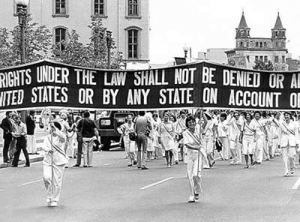Constitutional Adjudication and Social Division – A Judicial Perspective
I am pleased to be leading a very vibrant seminar this semester, during which we contemplate the judicial process as evident in constitutional/human rights decisions from jurisdictions as far-flung as Germany, Jamaica and India. Covering a range of substantive topics, from torture to religious freedom to socio-economic rights, our discussions and analysis can be distilled down to two underlying questions: what do judges say they are doing, and what are judges actually doing? A plethora of historical/social/contextual factors feed into the judicial process, and determine the scope and nature of the project of constitutional adjudication.
The upcoming SCOTUS decisions on the 1996 Defense of Marriage Act (denying federal benefits to same-sex couples that are legally married in their states) and California’s Proposition 8 (a voter-approved ban on same-sex marriage), in addition to their potentially profound personal significance to persons on all sides of the marriage debate, will no doubt provide rich fodder for human rights jurists.
So it is timely, I believe, to bring attention to the story of South Africa’s constitutional adjudication of this sensitive issue, and to consider the role the South African Constitutional Court sees itself playing when it deals with the complexities of constitutional rights.

